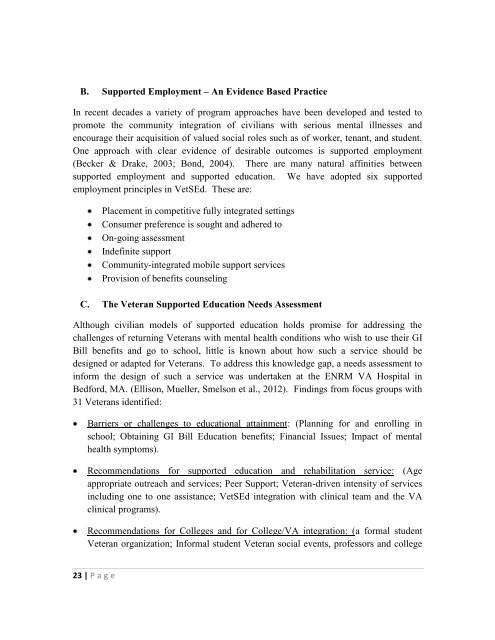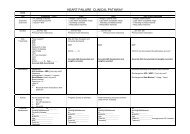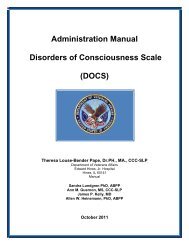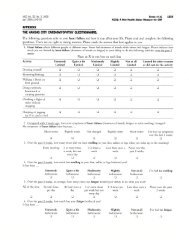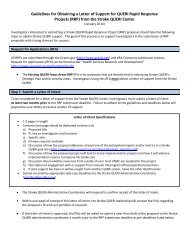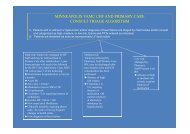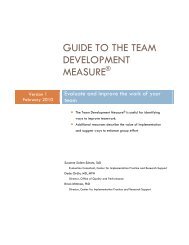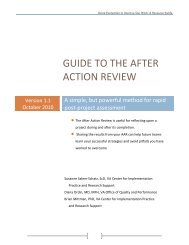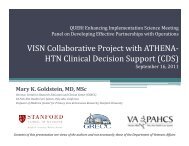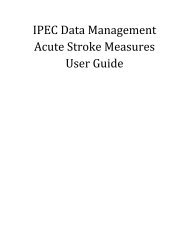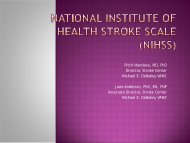The Veteran Supported Education Service Treatment Manual: VetSEd
The Veteran Supported Education Service Treatment Manual: VetSEd
The Veteran Supported Education Service Treatment Manual: VetSEd
You also want an ePaper? Increase the reach of your titles
YUMPU automatically turns print PDFs into web optimized ePapers that Google loves.
B. <strong>Supported</strong> Employment – An Evidence Based Practice<br />
In recent decades a variety of program approaches have been developed and tested to<br />
promote the community integration of civilians with serious mental illnesses and<br />
encourage their acquisition of valued social roles such as of worker, tenant, and student.<br />
One approach with clear evidence of desirable outcomes is supported employment<br />
(Becker & Drake, 2003; Bond, 2004). <strong>The</strong>re are many natural affinities between<br />
supported employment and supported education. We have adopted six supported<br />
employment principles in <strong>VetSEd</strong>. <strong>The</strong>se are:<br />
Placement in competitive fully integrated settings<br />
Consumer preference is sought and adhered to<br />
On-going assessment<br />
Indefinite support<br />
Community-integrated mobile support services<br />
Provision of benefits counseling<br />
C. <strong>The</strong> <strong>Veteran</strong> <strong>Supported</strong> <strong>Education</strong> Needs Assessment<br />
Although civilian models of supported education holds promise for addressing the<br />
challenges of returning <strong>Veteran</strong>s with mental health conditions who wish to use their GI<br />
Bill benefits and go to school, little is known about how such a service should be<br />
designed or adapted for <strong>Veteran</strong>s. To address this knowledge gap, a needs assessment to<br />
inform the design of such a service was undertaken at the ENRM VA Hospital in<br />
Bedford, MA. (Ellison, Mueller, Smelson et al., 2012). Findings from focus groups with<br />
31 <strong>Veteran</strong>s identified:<br />
Barriers or challenges to educational attainment: (Planning for and enrolling in<br />
school; Obtaining GI Bill <strong>Education</strong> benefits; Financial Issues; Impact of mental<br />
health symptoms).<br />
Recommendations for supported education and rehabilitation service: (Age<br />
appropriate outreach and services; Peer Support; <strong>Veteran</strong>-driven intensity of services<br />
including one to one assistance; <strong>VetSEd</strong> integration with clinical team and the VA<br />
clinical programs).<br />
Recommendations for Colleges and for College/VA integration: (a formal student<br />
<strong>Veteran</strong> organization; Informal student <strong>Veteran</strong> social events, professors and college<br />
23 | P a g e


